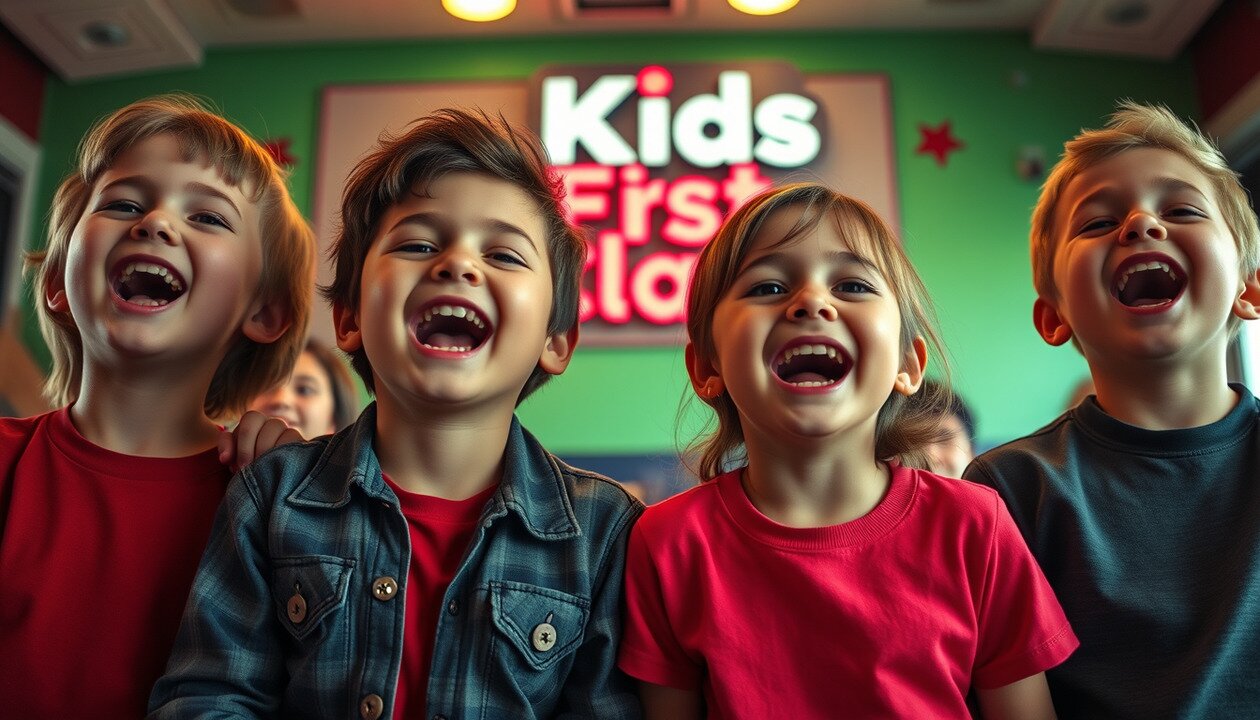
N — No Screens, No Stress
Real Singing with Real People Builds Stronger Brains Than Any App.
Interactive music builds real-world attention, emotion, and expression. Screen time isolates, but singing invites connection. The difference is not digital — it’s human.
The Human Connection Beats the Digital Distraction
At Kids First Class, we don’t hand toddlers a screen and call it learning.
We give them the most powerful tool in child development: real interaction.
When children sing face-to-face with a parent or caregiver, they don’t just absorb sounds — they build brains.
Apps entertain.
People connect.
And that difference changes everything.
Why Screens Fall Short in Early Childhood Learning
Screens — even “educational” ones — often:
Encourage passive consumption, not active participation
Overstimulate the brain with hyper visuals and noise
Weaken emotional regulation and attention span
Replace human interaction with synthetic responses
Train children for dopamine-driven addiction, not meaningful focus
This isn’t learning — it’s distraction wrapped in pixels.
Singing in Real Life Activates Real Growth
When toddlers sing with real people, their brains:
Engage in true communication — with eye contact, turn-taking, and shared emotion
Strengthen mirror neurons for empathy and social awareness
Build executive function through rhythm, memory, and sequencing
Form secure emotional bonds, which make learning feel safe and joyful
This kind of interaction builds neurological pathways that no app can replicate.
The Difference Isn’t Just Analog vs. Digital — It’s Human vs. Isolated
Screens isolate the child in a two-dimensional world.
Singing with a parent anchors the child in real time, real space, and real love.
Music becomes a relational tool, not a solitary escape.
The result?
Children who are more focused, more confident, more connected — and more intelligent.
Learning That Calms the Brain, Not Fractures It
At Kids First Class, we believe that:
Calm is smarter than chaos
Bonding beats buttons
Learning is better when it’s joyful, shared, and screen-free
No bright flashing lights. No artificial voices.
Just you, your child, and the most powerful educational tool ever invented: the human voice in song.